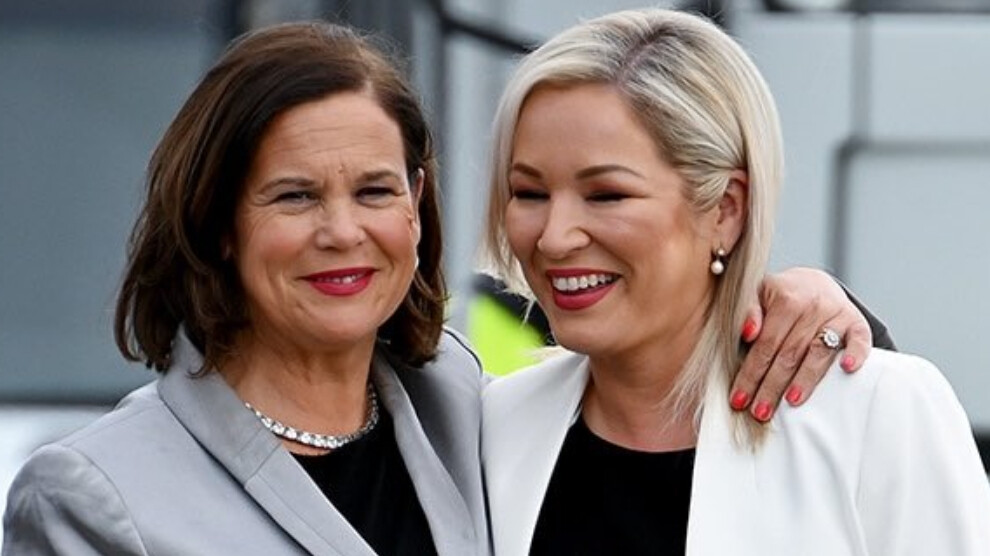Sinn Féin is biggest party in local government
The final seats have been declared in the council election, with Sinn Fein emerging as the biggest party for the first time in local government.
The final seats have been declared in the council election, with Sinn Fein emerging as the biggest party for the first time in local government.

The final seats have been declared in the council election, with Sinn Fein emerging as the biggest party for the first time in local government.
Counting finished just after midnight, with People Before Profit’s Michael Collins in Belfast the 462nd and last councillor to be returned.
The final tally saw Sinn Fein finish with 144 councillors, up 39 from the last council election in 2019, with the DUP second with 122 (unchanged). Alliance was third with 67 seats (up 14).
Michelle O'Neill, Sinn Féin's leader, hailed it as a "momentous" election result for the party.
Sinn Fein secured a series of gains across the 11 councils and saw a surge in first preference votes to take 30.9% of the total vote – up 7.7% from 2019.
O’Neill said: “Historic change is happening, and Sinn Fein is leading that change right across Ireland.”
Calling for the return of powersharing at Stormont, she added: “The boycott of the Assembly cannot go on and an Executive must be formed. It is time to make politics work for all right across this island.”
Sinn Fein are the largest party at City Hall, with 22 councillors. The DUP have 14, with Alliance third on 11.
Sinn Fein are also the largest party in Mid Ulster, Derry and Strabane, Armagh, Banbridge and Craigavon and Newry, Mourne and Down.
They will also have overall control of Fermanagh and Omagh after winning 21 out of 40 seats.
The DUP will be the largest grouping in Lisburn and Castlereagh, Mid and East Antrim and Ards and North Down. They also have the largest number of councillors in Antrim and Newtownabbey.
DUP leader Jeffrey Donaldson said it was a strong performance in challenging circumstances.
Donaldson said unionism had to take a “long, hard look” at how it manages elections, citing the “splintering” of the unionist vote and turnout in some unionist heartlands.
“These are issues that we do need to address and I am happy to sit down with my fellow unionists and examine these issues and look at how greater cooperation can beat a pathway towards more success for unionism in general,” he said.
It was a bad election for the UUP and the SDLP, who saw a series of losses across the council areas. The UUP finished with 54 seats (down 21) with the SDLP on 39 (down 20).